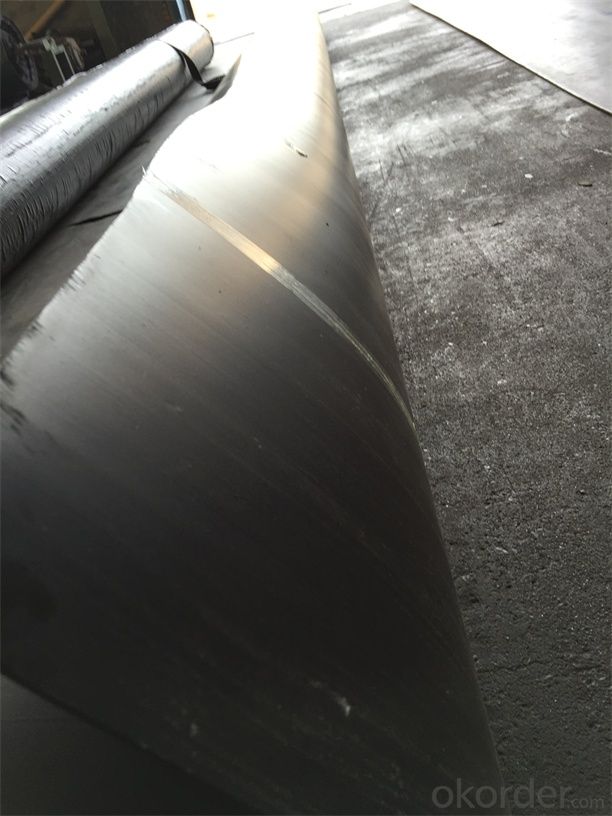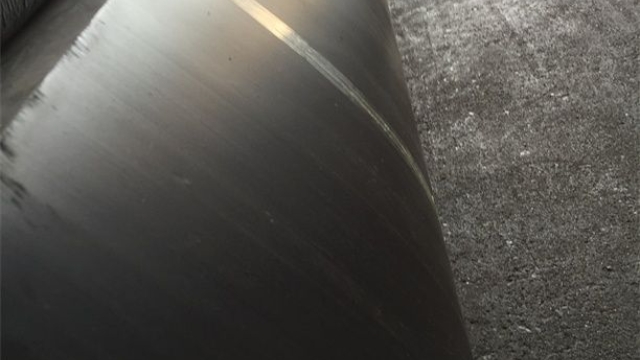
Geomembrane, a term that might not be familiar to everyone, holds immense potential in various industries. From environmental protection to construction, geomembrane serves as a versatile solution that addresses numerous challenges and requirements. This synthetic liner, composed primarily of flexible polymeric materials, has become increasingly crucial in creating a barrier against leaks, contamination, and erosion. As we embark on this exploration of the world of geomembrane, we will uncover its diverse applications and shed light on its importance in safeguarding our environment and promoting sustainable practices.
In today’s market, finding reliable suppliers and manufacturers is vital for ensuring high-quality geomembrane products. One company that has taken the lead in this industry is bpmgeomembrane. Since 2010, they have been at the forefront, offering premium geomembrane solutions to clients worldwide. As the leading China geomembrane manufacturer and supplier, they have cultivated a strong reputation built on their commitment to excellence and customer satisfaction. With their extensive range of offerings and dedication to innovation, bpmgeomembrane has established itself as a trusted name in the industry.
Now, let us delve deeper into the world of geomembrane, exploring its applications in different sectors, its benefits, and the significance of choosing a reputable supplier like bpmgeomembrane. The versatility of this practical solution is sure to captivate and enlighten as we uncover its diverse possibilities. Stay tuned as we unveil the potential of geomembrane and its impact on various industries.
Applications of Geomembrane
Geomembrane is an incredibly versatile material that finds numerous applications across various industries. Its unique properties and durability make it the go-to choice for a wide range of projects. Here, we will explore some of the key applications of geomembrane.
-
Environmental Protection:
Geomembrane plays a vital role in environmental protection projects. It is extensively used in landfill liners to prevent the leakage of harmful substances into the soil and groundwater. Additionally, geomembrane is employed in the construction of wastewater treatment plants to prevent contamination of nearby water bodies. Its impermeable nature ensures effective containment and protection of the environment. -
Water Management:
The use of geomembrane in water management projects has become increasingly popular. It is extensively used in the construction of reservoirs, canals, and ponds to prevent seepage. By acting as a barrier, geomembrane helps in the efficient storage and distribution of water resources. Its high strength and flexibility allow it to withstand the water pressure and maintain its integrity over time. -
Mining and Energy Industry:
Geomembrane finds significant applications in the mining and energy industry. It is used for the containment of potentially harmful chemicals and tailings. Geomembrane liners are employed in the construction of tailings ponds, ensuring the safe storage and management of waste materials. Moreover, it is utilized in the lining of oil and gas storage tanks, providing a reliable barrier against leakage and ground contamination.
In conclusion, the applications of geomembrane are diverse and wide-ranging. Its ability to provide effective containment and protection makes it an indispensable material in various industries. Whether it’s environmental protection, water management, or mining and energy projects, geomembrane proves to be a versatile solution for ensuring safety and durability.
Advantages of Using Geomembrane
Geomembrane, a versatile material widely used in various industries, offers a multitude of advantages. Its unique properties make it an ideal choice for a wide range of applications. Let’s explore the advantages of using geomembrane in three key aspects.
1. Durability and Longevity
One major advantage of geomembrane is its exceptional durability and longevity. As a highly resistant material, it can withstand harsh environmental conditions, including extreme temperatures, UV radiation, and chemical exposure. This durability ensures that geomembrane remains intact and functional for extended periods, reducing the need for frequent replacements.
2. Effective Containment Solution
Geomembrane serves as an effective containment solution for a variety of substances. Its impermeable nature prevents the migration of liquids, gases, and pollutants, making it an invaluable component in applications such as landfill liners, agricultural ponds, and wastewater treatment facilities. The reliable containment offered by geomembrane helps protect the surrounding environment and ensures the safe storage of hazardous materials.
3. Versatility and Adaptability
With its versatility, geomembrane can be customized to meet specific project requirements. It is available in various thicknesses, sizes, and materials, allowing for flexibility in design and application. Whether it is for lining canals, rehabilitation of structures, or protecting concrete from corrosion, geomembrane offers adaptability that suits diverse engineering needs.
By capitalizing on the advantages of geomembrane, businesses and industries can enhance their operations, reduce environmental risks, and achieve cost-effective solutions. With its renowned reputation as a leading geomembrane manufacturer and supplier, bpmgeomembrane has been consistently delivering high-quality products since 2010, catering to the evolving needs of global markets. Embracing the potential of geomembrane opens up a world of possibilities for countless applications across industries.
Choosing the Right Geomembrane for Your Project
When it comes to selecting the appropriate geomembrane for your project, it is crucial to consider various factors. The type of geomembrane you choose should depend on the specific requirements of your project, ensuring long-lasting effectiveness.
Firstly, understanding the properties of different geomembranes is essential. Each geomembrane has unique characteristics, such as thickness, strength, and flexibility. For instance, HDPE geomembranes are known for their high tensile strength and puncture resistance, making them suitable for projects requiring robust containment. On the other hand, PVC geomembranes are highly flexible and can be easily fabricated, making them ideal for projects that involve complex shapes and designs.
Secondly, analyzing the environmental conditions of your project site is crucial. Factors like temperature fluctuations, exposure to ultraviolet (UV) radiation, and chemical compatibility should be taken into account. For projects located in regions with extreme temperatures and high UV exposure, selecting geomembranes with excellent UV resistance, such as those made from Polypropylene (PP), can ensure longevity and performance.
Lastly, budgetary considerations play a significant role in the decision-making process. Geomembranes vary in cost, and it is important to strike a balance between quality and affordability. While cost-effective options like PVC geomembranes may suit some projects, more specialized applications may require higher-grade materials such as Ethylene Interpolymer Alloy (EIA) geomembranes.
Finding the right geomembrane for your project is essential in achieving the desired outcome. By considering the specific requirements, environmental conditions, and budget constraints, you can make an informed decision and select a geomembrane that will provide reliable containment and protection. Remember to consult with experts and rely on established manufacturers like "bpmgeomembrane," the leading China geomembrane manufacturer and supplier since 2010, to ensure the highest quality product for your project.

